Latest
Jaco Remembered, and Looking Ahead
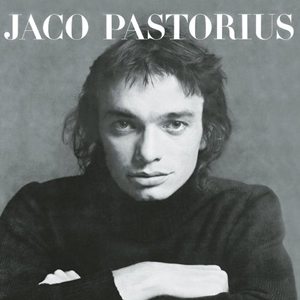

It would be easy for me to continue on speaking of the many accolades this man has coming, but I’m choosing not to, for its already been said with love and great respect by much greater voices in the industry than my own.
What I’d like to present to you out of respect for the man and his legacy, is a look ahead. I’ve come with a question that I’ve presented to some of our staff members (some players of great stature in their own right I’m proud to say) to ponder, and respond for all to hear.
Kind of amazing—putting the focus of the question towards looking at what we’re hearing as of late, I marvel at how easy it is to use Jaco as a serious reference point in this matter 20 years later. Damn, that’s some impact.
Also in this issue you will find a review of a recent Jaco compilation CD I would recommend taking a look at, as well as a video clips in our new column “Recommended Videos”, and I hope keeping the focus of this article to “looking ahead”, is something he’d give a thumbs up to.
What player (or players) would you recommend giving a listen to, that in the spirit of Jaco and the innovation he brought to us, is on the same path in your opinion as far as stretching the boundaries yet again of this instrument, and focusing on exploring the possibilities of its continued evolution? This is what our writers had to say…
Alain Caron…
Here are three bass players that I find quite different and innovative with a different approach of the bass guitar. Carlos Benavent from Spain, Dominique DiPiazza from France and also from France, Hadrien Feraud, a young and upcoming player.
Michael Manring…
It seems to me this is a radically different time culturally from when Jaco was coming up, so drawing parallels can be a bit problematic. What I see out there now is a rich community of bassists who are working hard to contribute to the growth and creative breadth of the instrument. It’s a big and varied list and I’m always afraid I’ll leave out too many good folks if I try to enumerate, but I’m sure you’ll find many of the names in the pages of publications like this one. I had the good fortune to get to know Jaco when he was alive and I think if he were still around, he’d feel honored to be one of the voices in that community.
David Dyson… The players that come to mind right away are Richard Bona, Gary Willis, Guellermo Vadala, & Marcus Miller. The reason I picked these cats (though there are others as well) is because though you can clearly hear Jaco’s influence, they’ve each taken the bass to another level in one way or another.
Doug Johns…
The first musician that came to mind was Victor Wooten, not for his obvious “From another world” technique, but for his spirit.
In the bass guitar history few have really taken the turn from the main road as Jaco, James Jamerson, Eddie Gomez, and Stanley Clarke have. That’s were I think Victor is still continuing that tradition of spinning your head around from his approach.
Although not a bass player I believe Gonzalo Rubacaba possesses that same spirit that Jaco has; you can hear it in his playing.
Nathan East…
In answer to your question, I would have to say Pino Paladino!
Billy Dickens…
When I think about players who are continuing the legacy of Jaco, I find I could come up with quite a few players who in their own way are contributing to the evolution of this instrument, but the players that came up for me right away, with all due respect to many others, are Alain Caron, Gary Willis and Victor Wooten.
Ray Riendeau…
Hopefully there is a little of Jaco in all of us, I have not met a bass player yet not effected by his legacy. There is long list of players that fall into what I consider to be the title of the “evolution” of the bass. To keep my answer somewhat short I will talk about one of my personal favorites.
The first bass player I thought of when I read the question is Michael Manring. In my opinion Michael has and is redefining the instrument as a whole and with the same artistic integrity, musicality and excitement that Jaco did. Hearing Michael and Jaco play reminds us that the ultimate goal is music. When I hear them I don’t think of bass playing I am always struck by their musicality, it just happens to be on the bass.
Unfortunately I never got to see Jaco live but I’m certain that he would invoke the same feelings I get whenever I see Michael perform. There is such a sense of adventure and excitement each and every time I see Michael play. You forget about how technical or virtuosic the actual playing is and get lost in how beautiful the music is…that’s the point right? To me this is the essence of any great musician no matter what instrument they use.
At a recent clinic I did with Michael someone asked him about Jaco. Michael was a little overwhelmed for a moment and it was obvious what an impact Jaco had made on him. It was interesting to hear that Michael actually was so enamored with Jaco that he followed him around New York and even stated that he wanted to be him. At one point Jaco conveyed to Michael that he needed his own identity as a musician (words of wisdom for us all).
This is why I picked Michael for my answer. He took from Jaco the best gifts of all, his sense of passion, integrity and exploration of music itself and because of that redefined how we have previously viewed the role of the bass and what can be done the instrument. Michael continues to amaze me and I cherish any chance I get to hear him perform.
Mark Wright…
Michael Manring: Alternate tunings & haunting melodies
Jeff Schmidt: Alternate tunings & chords, combining multiple techniques at one time
Bill Dickens: Chords & jazz melodies
Victor Wooten: Taking slapping & tapping to new unheard of levels
Todd Johnson…
Michael Manring is off the charts in my opinion… the same for Gary Willis… obviously Victor Wooten…
Adam Nitti… Dominique DiPiazza – Probably the most melodic player of our time. Incredible blend of chops and harmonic sensitivity.
Damian Erskine…
MAN!!!! What a tough question. A great one, though!
I would have to suggest a few different people to encapsulate a few of the different things that made Jaco so important.
Pure musicality and soul in his playing – Otiel Burbridge and Rich Brown are two of the most soulful bass players and melodic soloists I’ve heard in sometime. I just can’t get enough of these guys. You always feel like your listening to MUSIC when they play. Not chops or licks.
Technical proficiency – Hadrien Feroud or Dominic DiPiazza (as well as Richard Bona) have all definitely taken the instrument to new heights in regards to technical facility. These guys are on another plane.
New directions in approach – Victor Wooten. Nuff said. He has taken bass to new levels for a whole new generation of people who had no idea you could do that with a bass!
And I think that THAT is why Jaco was so important. He was the guy who brought ALL of those things together. I honestly couldn’t think of one guy who encapsulated EVERYTHING that Jaco did for the instrument in contemporary terms. There are certainly a HUGE numbers of bassists that I absolutely love and might even prefer to Jaco right now, but NONE of them would exist, as they do today, without Jaco’s presence in their development or the development of the instrument in general. Now THAT is a major impact!
Al Caldwell…
Richard Bona reflects the melodic sensibilities that Jaco inflamed in us all. Jaco sang the lick in Birdland. He was beyond a bassist. He was a complete musician and I feel the same about Richard. His solo CD’s are not filled with pyro-laced feats. They reflect his gift to transpose thought into tonality. We have many Jaco clones, but so few bold painters. There’s some kid in his or her room who loves music more than fame. They are tomorrow’s inspiration. Paint with broad strokes, Stay true to your heart and never play to impress us… play for yourself. We will find you!!!
Bass Videos
Interview With Bassist Erick “Jesus” Coomes
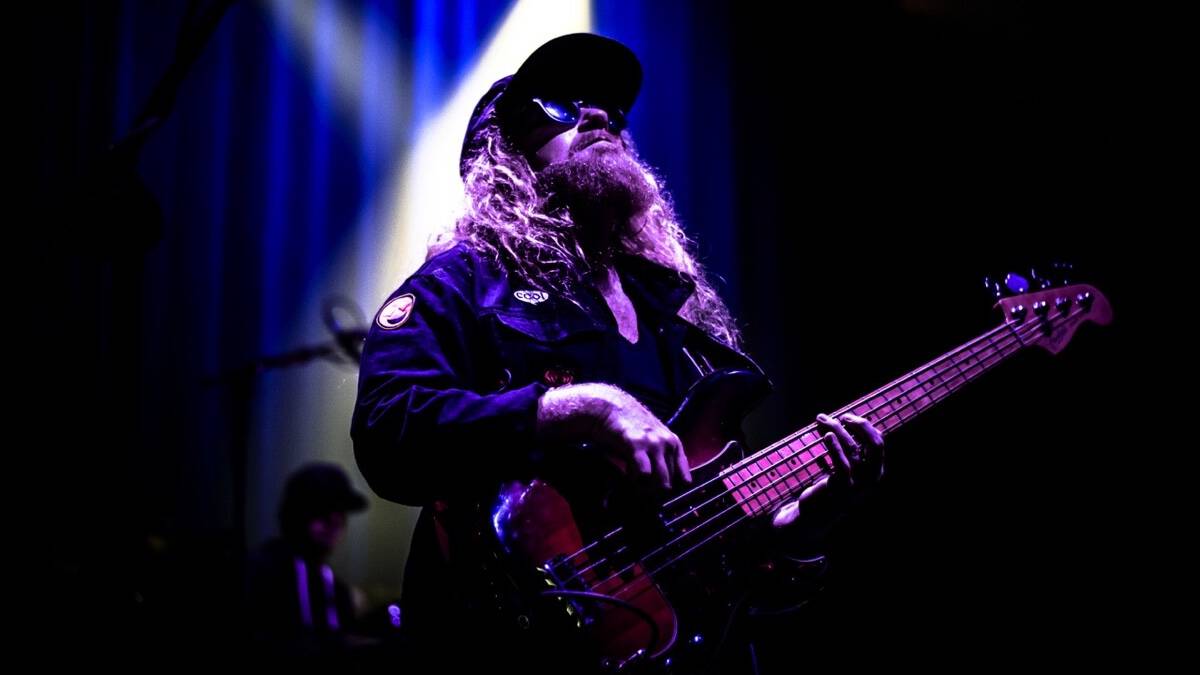
Bassist Erick “Jesus” Coomes…
It is always great to meet a super busy bassist who simply exudes a love for music and his instrument. Erick “Jesus” Coomes fits this description exactly. Hailing from Southern California, “Jesus” co-founded and plays bass for Lettuce and has found his groove playing with numerous other musicians.
Join us as we hear of his musical journey, how he gets his sound, his ongoing projects, and his plans for the future.
Photo, Bob Forte
Featured Videos
Visit Online
www.lettucefunk.com
IG @jesuscsuperstar
FB@jesuscoomes
FB @lettucefunk
Bass Videos
Working-Class Zeros: Episode #2 – Financial Elements of Working Musicians
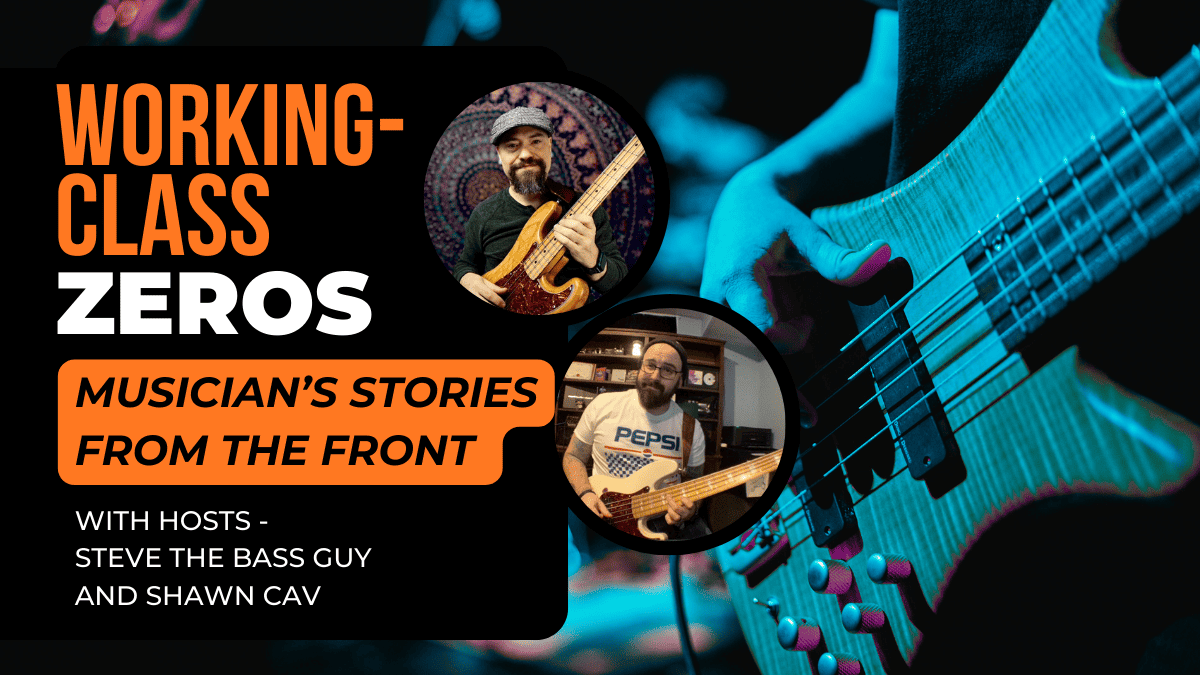
Working-Class Zeros: Episode #2 – Financial Elements of Working Musicians
“These stories from the front are with real-life, day-to-day musicians who deal with work life and gigging and how they make it work out. Each month, topics may include… the kind of gigs you get, the money, dealing with less-than-ideal rooms, as well as the gear you need to get the job done… and the list goes on from there.” – Steve the Bass Guy and Shawn Cav
Latest
This Week’s Top 10 Basses on Instagram
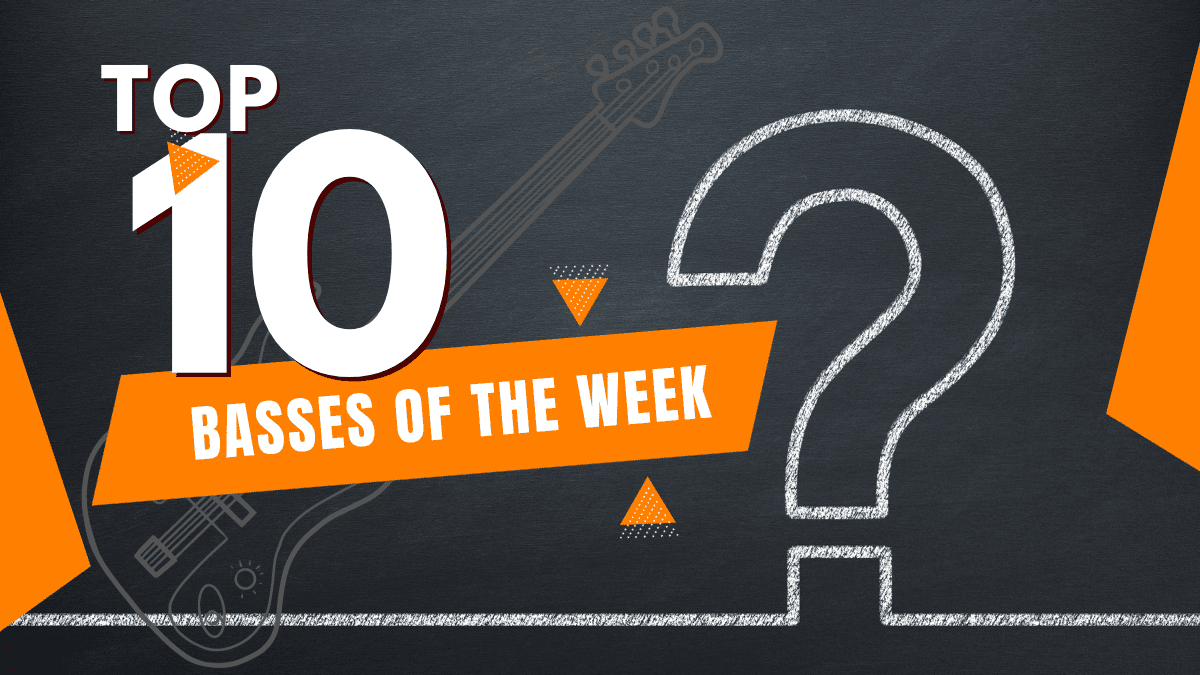
Check out our top 10 favorite basses on Instagram this week…
Click to follow Bass Musician on Instagram @bassmusicianmag
FEATURED @foderaguitars @overwaterbasses @mgbassguitars @bqwbassguitar @marleaux_bassguitars @sugi_guitars @mikelullcustomguitars @ramabass.ok @chris_seldon_guitars @gullone.bajos
Bass CDs
New Album: Jake Leckie, Planter of Seeds
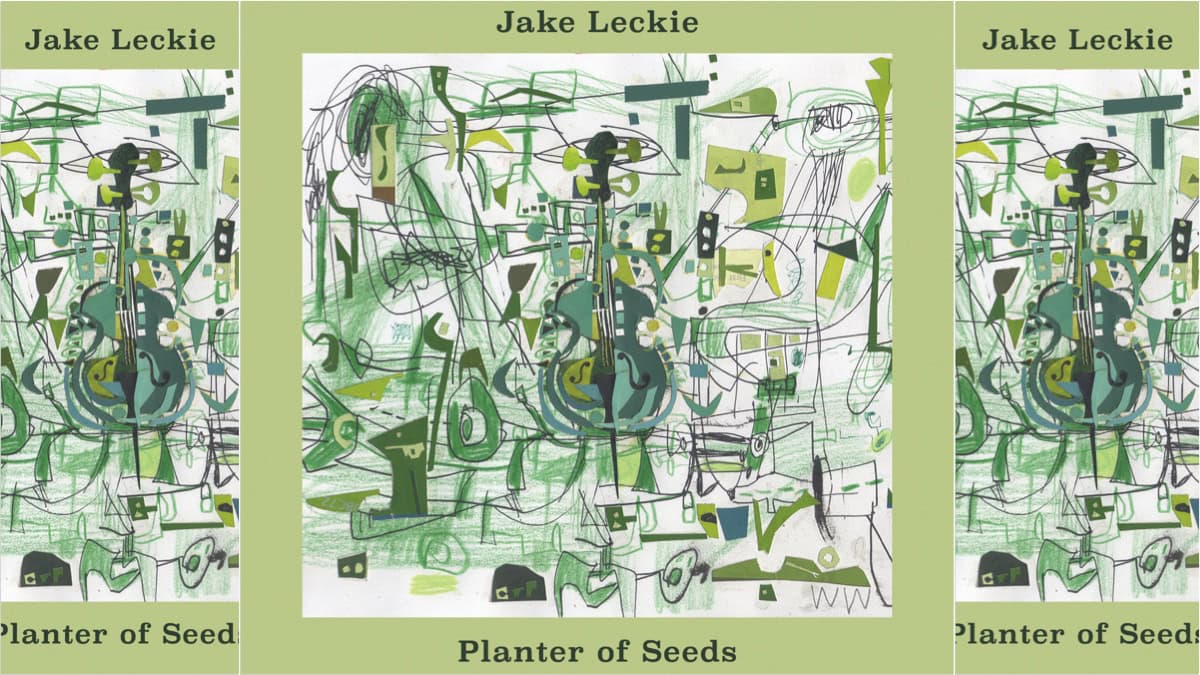
Bassist Jake Leckie and The Guide Trio Unveil New Album Planter of Seeds,
to be released on June 7, 2024
Planter of Seeds is bassist/composer Jake Leckie’s third release as a bandleader and explores what beauty can come tomorrow from the seeds we plant today.
What are we putting in the ground? What are we building? What is the village we want to bring our children up in? At the core of the ensemble is The Guide Trio, his working band with guitarist Nadav Peled and drummer Beth Goodfellow, who played on Leckie’s second album, The Guide, a rootsy funky acoustic analog folk-jazz recording released on Ropeadope records in 2022. For Planter of Seeds, the ensemble is augmented by Cathlene Pineda (piano), Randal Fisher (tenor saxophone), and Darius Christian (trombone), who infuse freedom and soul into the already tightly established ensemble.
Eight original compositions were pristinely recorded live off the floor of Studio 3 at East West Studios in Hollywood CA, and mastered by A.T. Michael MacDonald. The cover art is by internationally acclaimed visual artist Wayne White. Whereas his previous work has been compared to Charles Mingus, and Keith Jarrett’s American Quartet with Charlie Haden, Leckie’s new collection sits comfortably between the funky odd time signatures of the Dave Holland Quintet and the modern folk-jazz of the Brian Blade Fellowship Band with a respectful nod towards the late 1950s classic recordings of Ahmad Jamal and Miles Davis.
The title track, “Planter of Seeds,” is dedicated to a close family friend, who was originally from Trinidad, and whenever she visited family or friends at their homes, without anyone knowing, she would plant seeds she kept in her pocket in their gardens, so the next season beautiful flowers would pop up. It was a small altruistic anonymous act of kindness that brought just a little more beauty into the world. The rhythm is a tribute to Ahmad Jamal, who we also lost around the same time, and whose theme song Poinciana is about a tree from the Caribbean.
“Big Sur Jade” was written on a trip Leckie took with his wife to Big Sur, CA, and is a celebration of his family and community. This swinging 5/4 blues opens with an unaccompanied bass solo, and gives an opportunity for each of the musicians to share their improvisational voices. “Clear Skies” is a cathartic up-tempo release of collective creative energies in fiery improvisational freedom. “The Aquatic Uncle” features Randal Fisher’s saxophone and is named after an Italo Calvino short story which contemplates if one can embrace the new ways while being in tune with tradition. In ancient times, before a rudder, the Starboard side of the ship was where it was steered from with a steering oar. In this meditative quartet performance, the bass is like the steering oar of the ensemble: it can control the direction of the music, and when things begin to unravel or become unhinged, a simple pedal note keeps everything grounded.
The two trio tunes on the album are proof that the establishment of his consistent working band The Guide Trio has been a fruitful collaboration. “Santa Teresa”, a bouncy samba-blues in ? time, embodies the winding streets and stairways of the bohemian neighborhood in Rio de Janeiro it is named for. The swampy drum feel on “String Song” pays homage to Levon Helm of The Band, a group where you can’t always tell who wrote the song or who the bandleader is, proving that the sum is greater than the individual parts. Early jazz reflected egalitarianism in collective improvisation, and this group dynamic is an expression of that kind of inclusivity and democracy.
“The Daughters of the Moon” rounds out the album, putting book ends on the naturalist themes. This composition is named after magical surrealist Italo Calvino’s short story about consumerism, in which a mythical modern society that values only buying shiny new things throws away the moon like it is a piece of garbage and the daughters of the moon save it and resurrect it. It’s an eco-feminist take on how women are going to save the world. Pineda’s piano outro is a hauntingly beautiful lunar voyage, blinding us with love. Leckie dedicates this song to his daughter: “My hope is that my daughter becomes a daughter of the moon, helping to make the world a more beautiful and verdant place to live.”
Bass CDs
Debut Album: Nate Sabat, Bass Fiddler
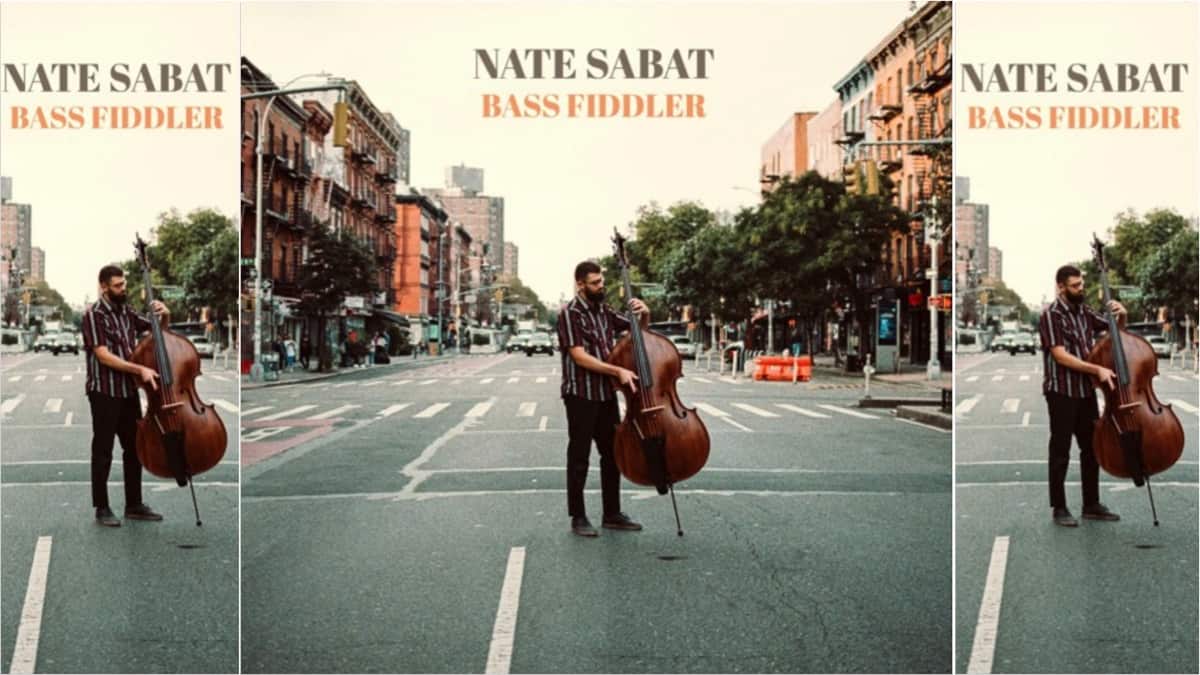
In a thrilling solo debut, bassist Nate Sabat combines instrumental virtuosity with a songwriter’s heart on Bass Fiddler…
The upright bass and the human voice. Two essential musical instruments, one with roots in 15th century Europe, the other as old as humanity itself.
On Bass Fiddler (Adhyâropa Records ÂR00057), the debut album from Brooklyn-based singer-songwriter and bass virtuoso Nate Sabat, the scope is narrowed down a bit. Drawing from the rich and thriving tradition of American folk music, Sabat delivers expertly crafted original songs and choice covers with the upright bass as his lone tool for accompaniment.
The concept was born a decade ago when Sabat began studying with the legendary old-time fiddler Bruce Molsky at Berklee College of Music. “One of Bruce’s specialties is singing and playing fiddle at the same time. The second I heard it I was hooked,” recalls Sabat. “I thought, how can I do this on the bass?” From there, he was off to the races, arranging original and traditional material with Molsky as his guide. “Fast forward to 2020, and I — like so many other musicians — was thinking of how to best spend my time. I sat down with the goal of writing some new songs and arranging some new covers, and an entire record came out.” When the time came to make the album, it was evident that Molsky would be the ideal producer. Sabat asked him if he’d be interested, and luckily he was. “What an inspiration to work with an artist like Nate,” says Molsky. “Right at the beginning, he came to this project with a strong, personal and unique vision. Plus he had the guts to try for a complete and compelling cycle of music with nothing but a bass and a voice. You’ll hear right away that it’s engaging, sometimes serious, sometimes fun, and beautifully thought out from top to bottom.”
While this record is, at its core, a folk music album, Sabat uses the term broadly. Some tracks lean more rock (‘In the Shade’), some more pop (‘White Marble’, ‘Rabid Thoughts’), some more jazz (‘Fade Away’), but the setting ties them all together. “There’s something inherently folksy about a musician singing songs with their instrument, no matter the influences behind the compositions themselves,” Sabat notes. To be sure, there are plenty of folk songs (‘Louise’ ‘Sometimes’, ‘Eli’) and fiddling (‘Year of the Ox’) to be had here — the folk music fan won’t go hungry. There’s a healthy dose of bluegrass too (‘Orphan Annie’, ‘Lonesome Night’), clean and simple, the way Mr. Bill Monroe intended.
All in all, this album shines a light on an instrument that often goes overlooked in the folk music world, enveloping the listener in its myriad sounds, textures, and colors. “There’s nothing I love more than playing the upright bass,” exclaims Sabat. “My hope is that listeners take the time to sit with this album front to back — I want them to take in the full scope of the work. I have a feeling they’ll hear something they haven’t heard before.”
Available online at natesabat.bandcamp.com/album/walking-away














